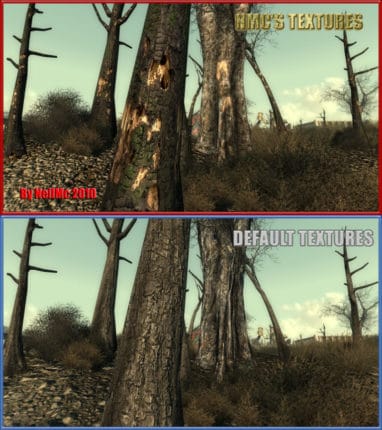

Additionally, the franchise's black humor is present but not nearly as prevalent, though Fallout 3 is still keenly aware of its roots. It even occasionally feels a bit stiff and sterile, thus diminishing the sense of emotional connection that would give some late-game decisions more poignancy. In fact, though occasional silly asides and amusing dialogue provide some humorous respite, it's more serious than previous Fallout games.

You'll discover new quests and characters while exploring, of course, but traversing the city is rewarding on its own, whether you decide to explore the back rooms of a cola factory or approach the heavily guarded steps of the Capitol building. It's a somber world out there, in which a crumbling Washington Monument stands watch over murky green puddles and lurching beasts called mirelurks. The city is also one of Fallout 3's stars. Another highlight is a diminutive collective of Lord of the Flies-esque refugees who reluctantly welcome you into their society, assuming that you play your cards right. As you make your way through the decaying remnants of the District and its surrounding areas (you'll visit Arlington, Chevy Chase, and other suburban locales), you encounter passive-aggressive ghouls, a bumbling scientist, and an old Fallout friend named Harold who has, well, a lot on his mind. When dad escapes the vault without so much as a goodbye, you go off in search of him, only to find yourself snagged in a political and scientific tug of war that lets you change the course of the future. It's an introduction best experienced on your own rather than described in detail here, but it does set up Fallout 3's framework: It's the year 2277, and you and your father are residents of Vault 101, one of many such constructs that shelter the earth's population from the dangers of postnuclear destruction.

This focus is obvious from the first hour of the game, in which character creation and story exposition are beautifully woven together. By clicking 'enter', you agree to GameSpot's


 0 kommentar(er)
0 kommentar(er)
